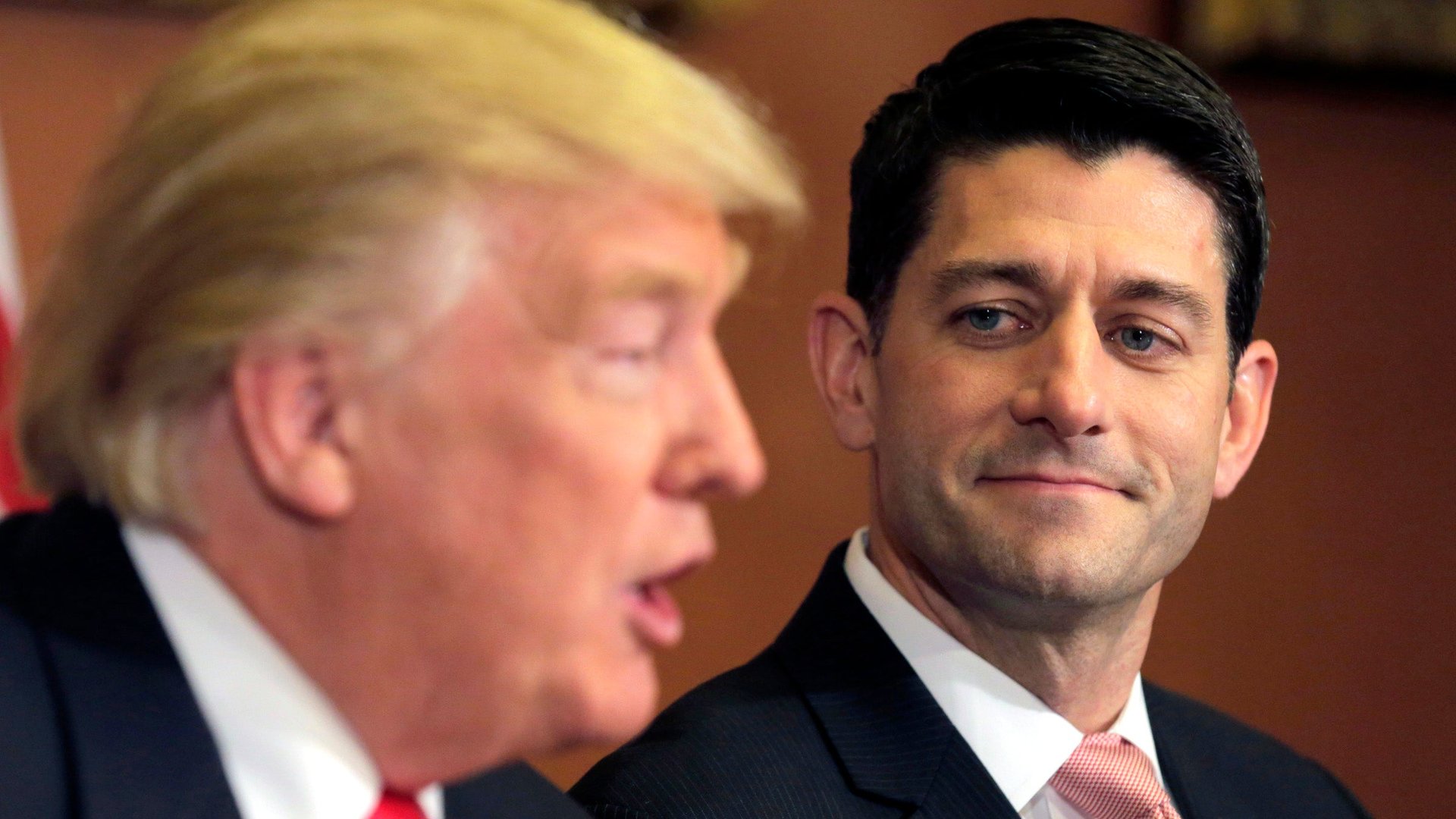Trump will start his term with the lesson that voters reward obstructionism
The night before the US presidential election, Barack Obama said in a video address that “no matter what happens, the sun will rise in the morning.” As the shock result of Donald Trump’s win sets in, the sunrise has been one of the few touchstones of normalcy for many in America and around the world. New Yorkers were deprived of even this; their Wednesday-morning skies were an overcast London gray, in case the parallels to June’s Brexit surprise were somehow lost on them.


The night before the US presidential election, Barack Obama said in a video address that “no matter what happens, the sun will rise in the morning.” As the shock result of Donald Trump’s win sets in, the sunrise has been one of the few touchstones of normalcy for many in America and around the world. New Yorkers were deprived of even this; their Wednesday-morning skies were an overcast London gray, in case the parallels to June’s Brexit surprise were somehow lost on them.
Trump won the electoral college but lost the popular vote. He will become the second consecutive Republican president to assume office with a minority rather than plurality of support. It’s an apt outcome for a candidate who ran against political and cultural pluralism, and who was elected inordinately by white men and women. Racist attacks and hate speech have already proliferated around the country since his victory.
America’s Declaration of Independence states that the power of its government derives from the “consent of the governed,” rather than from a bloodline or barrel of a gun. Its people are ruled by laws, rather than rulers. Trump, in his nomination acceptance speech in Cleveland in August, sounded like a strongman when he proclaimed that he alone could fix the United States’ problems. He will be held in legal check only by the Republican-led congress and the Supreme Court. And president Trump will be the beneficiary of the current senate’s refusal to execute its constitutional duties to advise and consent to Obama’s nominee. Which means obstructionism will tilt the court conservative as soon as his nominee is confirmed. The rule of law works only when all adhere to it. It is our collective belief and respect—consent—for the institutions of government that gives them the authority to operate. Yet the senate has already shown Trump how to ignore the law when it gets in the way of political ends—and that such strategies work, and will be rewarded, not punished, by the electorate.
Meanwhile journalists have been soul-searching, asking how pollsters got it so wrong, and how they might have covered Trump supporters with more empathy and understanding. They are asking themselves why his voters didn’t believe or didn’t care about the endless parade of stories showing Trump to be a racist, a misogynist, a bully; a petty, vindictive man who can articulate his policy positions in only the most simplistic terms, when he isn’t outright contradicting himself.
These are important questions to reckon with in the days ahead, but the fact of the matter is this: The man who tweeted at 3:00 am about Alicia Machado’s non-existent sex tape will soon be the man getting 3:00 am phone calls, with sole authority to exercise America’s nuclear weapons arsenal. On the trail, Trump bragged he would be unpredictable as president in order to be an effective negotiator. Many of his supporters took this to mean he wouldn’t really enact his divisive, terrifying agenda. Now, Trump’s political powers are no longer theoretical. What is public of the incoming government’s agenda is indistinguishable from his campaign platform. The world is about to see who is humbled by the awesome power of the American presidency: him, or us.